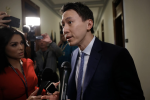In late May, an unusual event unfolded at Twitter as shareholders voted in favor of two proposals aimed at altering the company’s operations, despite Twitter’s recommendation against them.
Although shareholder votes typically do not bind management decisions, these votes were significant for advocating better corporate governance. The first proposal mandated Twitter to produce a report detailing the risks associated with concealment clauses like nondisclosure agreements, aiming to enhance accountability and safeguard staff. The second proposal demanded transparency from Twitter regarding its expenditures on elections.
In late May, amidst notable developments at Twitter, Elon Musk, the unpredictable billionaire, had initially agreed to purchase the company for $44 billion a month earlier, only to cast doubts on the deal shortly thereafter. The completion of the privatization deal this week renders shareholder votes largely inconsequential; Musk will now wield ultimate authority, superseding shareholder influence, a power he holds across numerous enterprises.
In the tech industry, especially within social media, annual shareholder meetings often highlight a stark power imbalance typical of Silicon Valley. Unlike other major tech figures like Meta’s Mark Zuckerberg, Snap’s Evan Spiegel, and Google’s Larry Page and Sergey Brin, who control a majority of voting shares in their companies, Twitter presented a different dynamic. It prided itself as a “town square,” operating with a more democratic ethos, albeit sometimes to its own detriment. Over the years, Twitter’s succession of CEOs frequently clashed with the board, leading to departures or oustings. This vulnerability eventually opened the door to activist investors, shareholder proposals, and ultimately a takeover bid by the world’s wealthiest individual.
Now, Musk joins the ranks of affluent Caucasian men who singularly dictate the operations of influential social platforms, shaping the lives of billions worldwide. According to a shareholders’ agreement, Musk will reportedly wield “absolute control over Twitter,” pledging to disrupt its content moderation policies, overturning permanent bans on users who had previously violated platform rules, including former President Donald Trump. Additionally, he aims to significantly reduce Twitter’s workforce, having already ousted several top executives.
These moves carry the potential to undo the efforts of employees striving to improve Twitter as a platform for healthy conversations, amid longstanding user concerns about harassment and toxic discourse. Despite being a fraction of Facebook’s size, Twitter has wielded outsized influence in media, politics, and technology—a role that now falls under Musk’s stewardship.
Opinions on Musk diverge sharply. Admirers view him as a transformative figure akin to Thomas Edison, Steve Jobs, and even the fictional Tony Stark—a visionary overcoming skepticism to build enterprises benefiting humanity. Conversely, critics highlight his track record of unfulfilled promises, erratic behavior, and controversial remarks.
With Musk assuming sole authority at Twitter, supporters may celebrate his role in shaping its future, while detractors express concern. Regardless, both camps recognize the unprecedented consolidation of power and wealth Musk embodies today, surpassing what seemed feasible just a few decades ago.
In 2022, tech founders’ vast influence is increasingly acknowledged. Musk’s acquisition of Twitter, however, marks a distinct level of influence, akin to Zuckerberg’s control over Facebook, which has not been without significant controversies and challenges. Musk’s ambitions span industries from automotive and space exploration to infrastructure and media, including endeavors as audacious as humanoid robots and brain-interface technologies.
Despite his professed intent to serve humanity, Musk’s propensity to dismiss criticism and assert his vision unilaterally raises alarms. His ownership of a major social network ensures a form of personal influence sought after by other controversial figures, evidenced by similar ventures pursued by Donald Trump and Kanye West.
Owning Twitter grants Musk unparalleled control and amplifies his voice on a global stage, immune to censorship—a level of power that carries profound implications for societal discourse and governance in the digital age.




